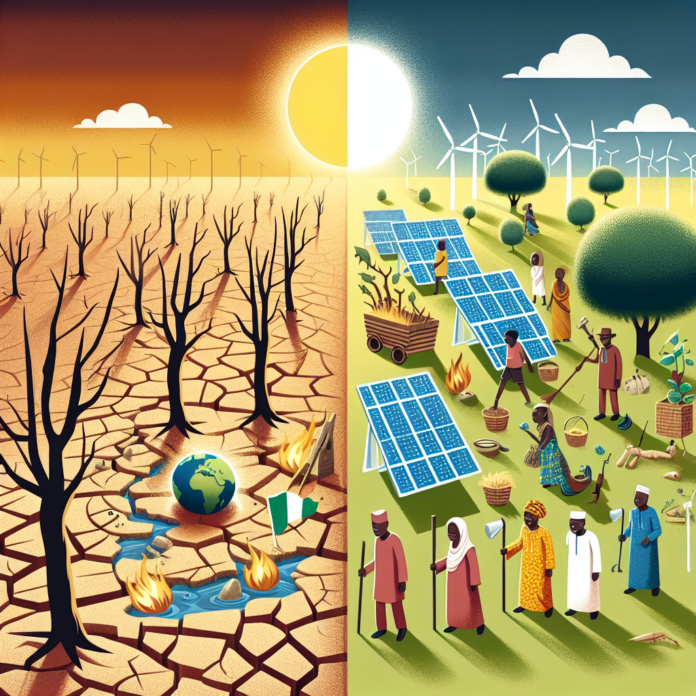Nigeria Confronts the Challenges of Climate Change
News Central
“`html
Nigeria: Battling the Challenges of Climate Change
Nigeria is facing an urgent crisis as climate change exacerbates existing environmental issues and poses significant threats to its economy and public health. The country, located in West Africa, is already experiencing the ramifications of rising temperatures, erratic rainfall patterns, and increased frequency of extreme weather events.
Impact on Agriculture
Agriculture, which employs a large portion of the Nigerian population and contributes significantly to the nation’s GDP, is particularly vulnerable. Changes in climate are affecting crop yields, leading to food insecurity and rising prices. Farmers are struggling with unpredictable rainfall, droughts, and flooding, which hinder their ability to plant and harvest effectively. The government and various organizations are advocating for sustainable agricultural practices and climate-resilient crops to mitigate these challenges.
Water Resources Under Threat
The availability of clean water is also jeopardized by climate change. Many regions in Nigeria are already grappling with water scarcity, and this situation is likely to worsen. Deforestation, pollution, and over-extraction of water resources are contributing factors. Initiatives to improve water management and conservation are critical to ensure that communities have access to this essential resource.
Health Implications
The health sector is not immune to the effects of climate change. Increased temperatures and changing ecosystems can lead to the spread of diseases, particularly those transmitted by insects, such as malaria and dengue fever. Additionally, heatwaves and poor air quality can exacerbate respiratory issues and other health problems among vulnerable populations.
Government Response and International Collaboration
The Nigerian government has recognized the severity of climate change and is taking steps to address it through various policies and initiatives. The National Adaptation Strategy and Plan of Action on Climate Change outlines measures for improving resilience, promoting sustainable development, and reducing greenhouse gas emissions. Collaborations with international organizations and climate finance initiatives are also crucial for enhancing Nigeria’s capacity to combat climate change.
Community Engagement and Awareness
Engaging local communities in climate action is vital. Environmental education programs are being implemented to raise awareness about the impacts of climate change and encourage sustainable practices. Grassroots movements are gaining traction, with communities advocating for policies that prioritize environmental protection and sustainability.
Looking Ahead
As Nigeria continues to confront the multifaceted challenges posed by climate change, a comprehensive approach that includes governmental action, community engagement, and international support will be essential. By fostering resilience and promoting sustainable practices, Nigeria can navigate the storm of climate change and secure a more stable future for its citizens.
“`


